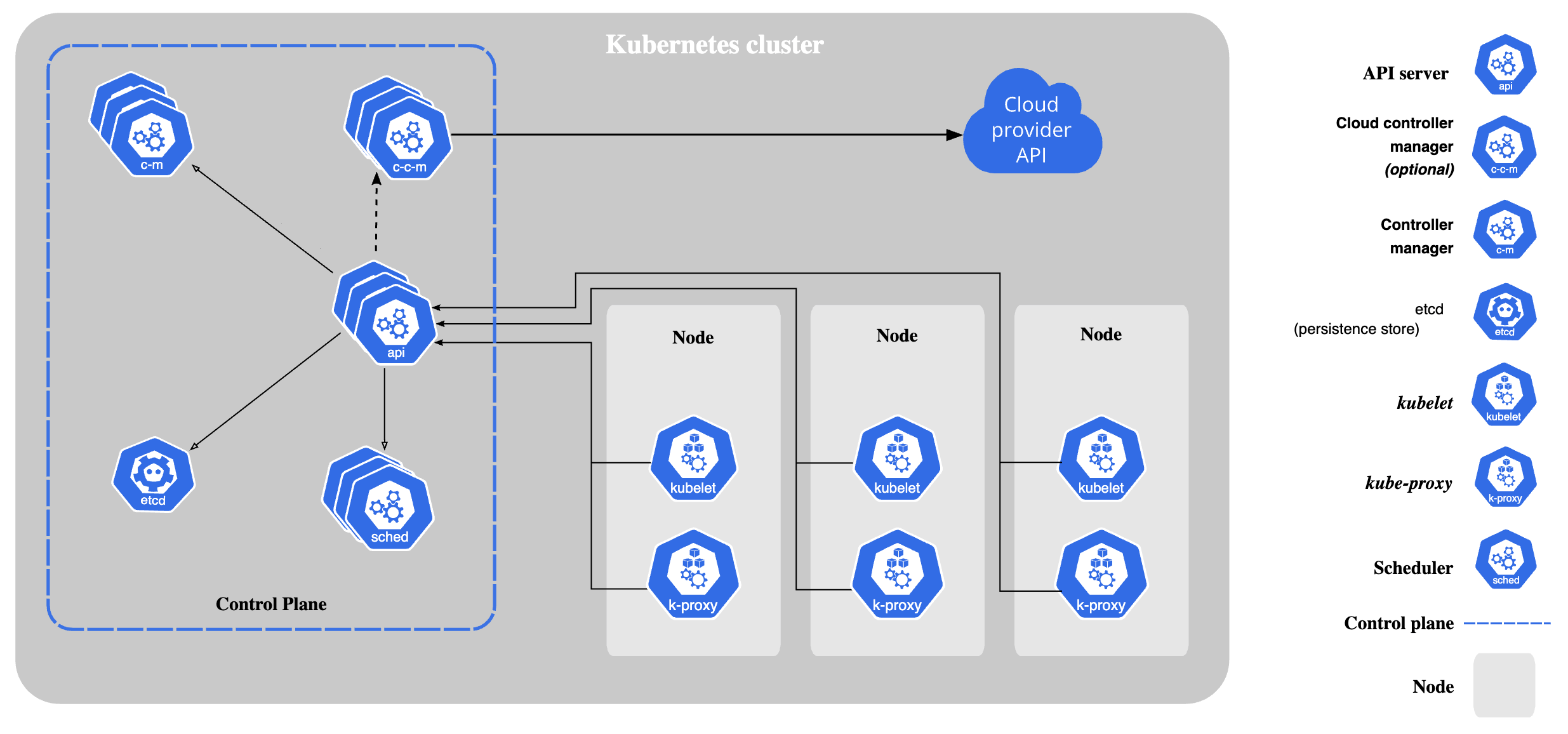About Kubernetes at Vultr
Introduction
Kubernetes has become the mainstream open-source orchestration tool for automating deployment, scaling, and management of containerized applications. Designed initially by teams at Google and released in 2014, Kubernetes is now officially maintained by the Cloud Native Computing Foundation. Kubernetes has quickly turned into the gold-standard of container orchestration.
What is Kubernetes?
Kubernetes comes from the Greek word for “helmsman,” (someone who steers a ship, like a container ship), which explains why the iconic symbol for Kubernetes (or K8s) is a ship wheel. Kubernetes is an open-source container orchestration tool that allows developers to deploy, scale, and manage containerized applications quickly at their cloud server providers.

Kubernetes Plugins
Because Kubernetes is cloud-agnostic, each server provider is responsible for offering two core plugins. These are vital to gain the full benefits of the cloud you’re running on. You’ll find Vultr’s core plugins here:
- Container Storage Interface (CSI)
- Cloud Controller Manager (CCM)
Vultr Condor is a Terraform module that provisions a Kubernetes cluster with the Vultr CCM and CSI. When you deploy Vultr Condor both plugins are preconfigured. In other words, your cluster quickly becomes Vultr-ready.
Other Kubernetes Plugins to consider:
- External DNS
- Auto scaler
Common Kubernetes Terms
Before running with Kubernetes, there are some key terms to understand:
- Kubernetes cluster is a set of nodes that run containerized applications.
- Kubernetes operator is an extension to Kubernetes that lets you build custom resources.
- Kubernetes node is a worker node, either virtual or physical, depending on the cluster.
- Kubernetes pod is the smallest, most basic deployable object in Kubernetes. A pod holds one or more containers.
- Kubernetes secrets let you store and manage sensitive information, such as passwords, OAuth tokens, and SSH keys.
- Kubernetes service is used if you want a deployment/pod(s) to be accessible from within the cluster (or outside).
- Kubectl is the Kubernetes command-line tool that allows you to run commands against Kubernetes clusters.
- Minikube is a tool that lets you run Kubernetes locally.
About Vultr’s Kubernetes Engine
Ready to get started building with Vultr Kubernetes? Gain all the benefits of K8s and Vultr together. Access the Vultr plugin to Terraform here.